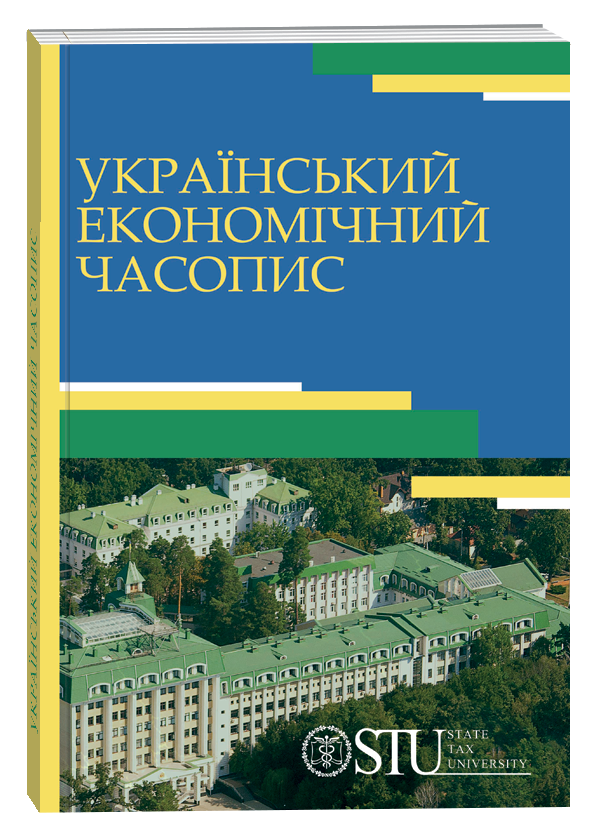INTERNAL MARKETING OF EDUCATIONAL INSTITUTIONS
DOI:
https://doi.org/10.32782/2786-8273/2024-5-14Keywords:
internal marketing, educational institution, management, staff, teacher, stakeholders, image, communicationsAbstract
Introduction. The relevance of the article is due to the fact that the domestic education system is in a transitional period, which determines the need to use new management tools. Global risks and conditions of uncertainty, a long period of education reform, which determines the transformation of traditional working conditions, digital progress and innovative technologies, a change in the format of interaction between participants in the educational process, cause the search for new vectors of development to solve current problems. In the field of education, as well as in other areas of services, in modern conditions, the priority is to improve the personnel management system, in which the attitude towards employees as the key intellectual resource of the organization is the leading one. The purpose of the article is to study the use of the concept of internal marketing in educational institutions. Methods. To achieve the goal, the methods of analysis and synthesis were used to study the theoretical foundations of internal marketing in organizations of the service sector by representatives of foreign and domestic schools of marketing. This made it possible to determine the role of the teacher in the educational process and the possibility of adapting the provisions of the concept of internal marketing in the context of the specifics of the activities of educational institutions. Results. The article summarizes the key issues that determine the specifics of the professional activity of the staff of educational institutions. One of the key vectors is a change in consumer perceptions of educational services and the activities of educational institutions in general, according to which staff play a special role as a key element of ensuring long-term mutually beneficial cooperation. Under such conditions, it is the mechanisms of marketing management of personnel of an educational institution that can become effective levers of competition for educational institutions in modern conditions. Conclusion. The definition of the category of internal marketing of an educational institution and its key principles is proposed. In the course of the study, the main components of the internal marketing of the educational institution were grouped, namely, the teaching staff and applicants, the educational service itself and the internal environment of its provision, corporate culture and the positive image of the educational institution. The implementation of the proposed aspects of internal marketing in the personnel management of the educational institution will contribute to ensuring the quality, customer orientation of the educational service and increasing competitiveness in the market.
References
Войчак А.В., Павленко А.Ф. Система і характеристики сучасного маркетингу. Київ : КДЕУ, 1994. 16 с.
Котлер Ф. Маркетинговий менеджмент: Підручник / Ф. Котлер, К.Л. Котлер, А.Ф. Павленко та ін. Київ : Видавництво «Хімджест», 2008. 720 с.
Куденко Н.В. Стратегічний маркетинг: навч. посібник. Київ : КНЕУ, 1998. 150 с.
Сагайдак М.П. Формування системи внутрішнього маркетингу підприємств сфери послуг. Київ : Вид-во ТОВ «Сік Груп Україна». 2015. 507 с.
Федорченко А.В. Внутрішній маркетинг підприємства: теорія, методика, практика: монографія / М-во освіти і науки України, ДВНЗ «Київ. нац. екон. ун-т ім. Вадима Гетьмана»; А.В. Федорченко, О. В. Окунєва; за наук. ред. А.В. Федорченка. Київ : КНЕУ, 2015. 230 с.
Яким має бути ідеальний учитель на думку батьків та самих педагогів – опитування. URL: https://nus.org.ua/news/yakym-maye-buty-idealnyj-uchytel-na-dumku-batkiv-ta-samyh-pedagogiv-opytuvannya/ (дата звернення: 01.05.2024)
Grönroos C. Relationship marketing: strategic and tactical implications. Management Decision. 1996. 34/3. P. 7.
Voichak A. V. (1994) Systema i kharakterystyky suchasnoho marketynhu [System and characteristics of modern marketing]. Kyiv: KDEU, 16 p. (in Ukrainian)
Kotler F. (2008) Marketynhovyi menedzhment: Pidruchnyk [Marketing management: textbook]. Kyiv: Vydavnytstvo «Khim¬dzhest», 720 p. (in Ukrainian)
Kudenko N. V. (1998) Stratehichnyi marketynh: Navch. Posibnyk [Strategic marketing: education. manual]. Kyiv: KNEU, 150 p. (in Ukrainian)
Sahaidak M. P. (2015) Formuvannia systemy vnutrishnoho marketynhu pidpryiemstv sfery posluh [Formation of the internal marketing system of enterprises in the service sector]. Kyiv: Vydavnytstvo TOV «Sik Hrup Ukraina», 507 p. (in Ukrainian)
Fedorchenko A. V. (2015) Vnutrishnii marketynh pidpryiemstva: teoriia, metodyka, praktyka: monohrafiia [Internal marketing of the enterprise: theory, methodology, practice: monograph]. Kyiv: KNEU, 230 p. (in Ukrainian)
Yakym maie buty idealnyi uchytel na dumku batkiv ta samykh pedahohiv – opytuvannia [What should an ideal teacher be according to parents and teachers themselves – survey]. Available at: https://nus.org.ua/news/yakym-maye-buty-idealnyj-uchytel-na-dumku-batkiv-ta-samyh-pedagogiv-opytuvannya/ (accessed May 01.2024) (in Ukrainian)
Grönroos C. (1996) Relationship marketing: strategic and tactical implications. Management Decision, no. 34/3, pp. 78.



